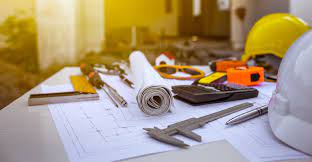In the dynamic world of real property, property improvement ai has transformed from a manual, labor-intensive process to one increasingly powered by AI (AI). This shift in technology is changing how homeowners, investors, and developers approach renovations and upgrades. This article will provide an overview of how AI is making waves in the property improvement ai and what you need know.
1. AI-Powered Design and Planning
AI is revolutionizing the design of property and planning with its sophisticated tools for designing and visualizing renovation projects. AI algorithms can analyze architectural plans and historical data to provide recommendations for improvements to design. Tools such as the virtual reality (VR) and enhanced reality (AR) that are powered by AI, allow users to test potential changes in real-time prior to committing to them. This not only enhances decision-making but also assists in avoiding costly mistakes.
2. Smart Renovation Recommendations
AI-powered platforms are able to assess the condition of a home and suggest improvements. Through the use of data from prior renovations, trends in the market, and user preferences, these platforms can provide insights into which upgrades can yield the most return on investment. For example, an AI system could recommend upgrading a bathroom or kitchen to increase property value, based on the market’s demand.
3. Predictive Maintenance
Maintaining a property involves the ability to anticipate and address problems before they become serious problems. AI plays an essential role in predictive maintenance by analyzing patterns and identifying potential issues. For example, AI systems can monitor HVAC systems plumbing, electrical, and infrastructures to detect failures and suggest preventive steps. This proactive approach aids in reducing the cost of repairs and extending the lifespan of property components.
4. Cost Estimation and Budget Management
AI tools can reduce cost estimations by analyzing the past, historical data, prices for materials and labor costs. This helps property owners and developers make more precise budgets and avoid unexpected expenses. AI can also optimize the procurement process by suggesting materials and suppliers that are cost effective in light of current market conditions.
5. Enhanced Project Management
The management of property improvement projects requires coordination of multiple tasks and stakeholder. AI can enhance project management by automating the scheduling as well as tracking progress in addition to managing resource. AI systems also analyze project data to identify any potential issues or delays and allow for quick intervention and adjustments.
6. Personalization and Customer Experience
AI allows for a more personalized experience by analyzing user preferences and behaviour. For instance AI-driven design tools can offer suggestions for home improvement that are suited to the individual’s tastes and requirements. This improves the satisfaction of homeowners and guarantees that renovations will meet the needs of specific homeowners.
Conclusion
AI is fundamentally changing the landscape of property improvement through making processes more efficient, cost-effective, and user-friendly. From planning and design to maintenance and managing projects, AI tools are helping developers and property owners make informed decisions and achieve more efficient results. As technology advances the role of AI in the improvement of property will only grow more important, offering new possibilities and opportunities for the real estate sector.
